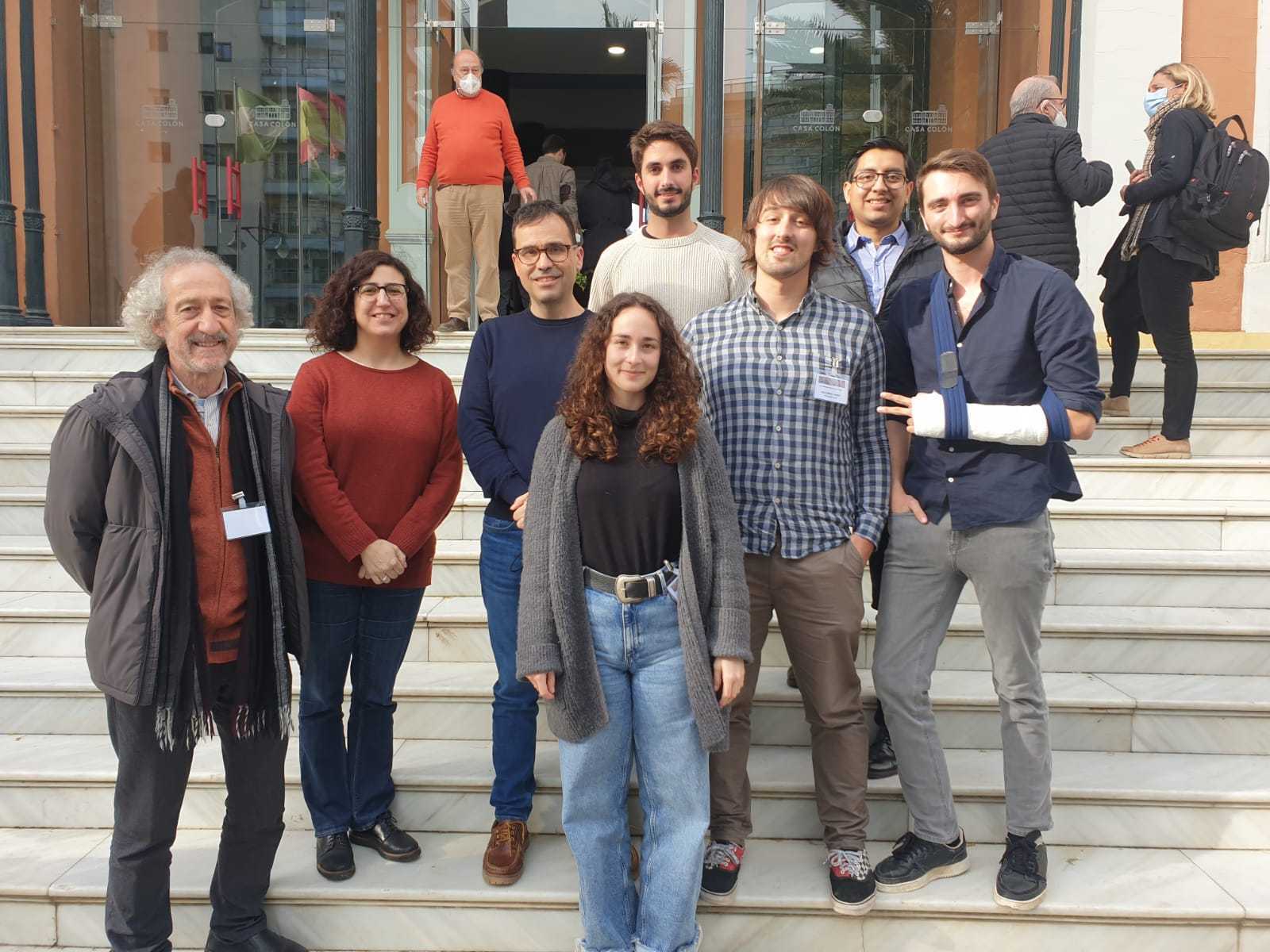
Part of the IFCA Particle Physics team at yesterday's event
This is the largest national event in Particle, Astroparticle and Nuclear Physics, bringing together more than 200 physicists and physicists from the most prestigious centres in Spain
23rd March 2022
After the break due to COVID-19 health crisis, the CPAN Conference returns in its on-site form. In this new edition, Huelva is the city to which part of the Particle Physics and Instrumentation Group of the IFCA (CSIC-UC) has travelled, together with more than 200 physicists from the most prestigious research centres in the country. In this thirteenth edition, the CPAN Conference brings together the Spanish scientific community of experts in particle physics, astroparticle and nuclear physics, for three days at the Casa Colón conference centre, in Huelva.
The conference, which began on Monday 21 March and ends this Wednesday, is organised by the Centre for Advanced Studies in Physics, Mathematics and Computing of the University of Huelva and the CPAN Network, with the aim of promoting meetings and collaboration between national and international experts from different fields of physics, as well as creating a space for debate and discussion between researchers from the main Spanish groups involved in major scientific collaborations, such as the ATLAS, CMS and LHCb experiments at CERN. For this reason, the CPAN Conference has become the most important meeting of the year for the scientific communities working in particle physics, astroparticle physics and nuclear physics, disciplines that seek to understand how the universe works and the matter that forms it at a fundamental level. Official poster of the 13th edition of the CPAN Days
One of the main themes addressed during the sessions of these days is the new and imminent start-up of the LHC (Run 3, the accelerator's third period of operation). The participants will share the results obtained in LHC Run 2 and jointly articulate the scientific perspectives for this new Run 3. In addition, the programme includes several talks on the future High-Luminosity LHC (HL-LHC), which comprises the culmination of a major process of renovation and improvement of the LHC accelerator, whose new design will allow, in the coming decades, ten times more data to be collected than with the original prototype. These new scientific projects have a high participation of Spanish groups belonging to the CPAN Network.
The most recent advances in long-term projects on future large colliders, such as the International Linear Collider (ILC), the Compact Linear Collider (CLIC) or the Future Circular Collider (FCC), are also presented. On the other hand, the experiments that pursue the search for and characterisation of the still mysterious dark matter, including those at the Canfranc Underground Laboratory, are reviewed, and the latest developments in the CTA (Cherenkov Telescope Array) network at the Roque de los Muchachos Observatory (La Palma), a scientific project that aims to study the cosmos by means of the most powerful electromagnetic radiation known, gamma rays, are presented. Neutrino physics, represented by projects such as NEXT and KM3Net, and application and prediction models based on theoretical and nuclear physics will also feature in many of the presentations at this thirteenth edition of the CPAN conference.
In addition to the plenary sessions, conferences and presentations will be organised on the different lines of research covered by the CPAN, such as, for example, papers related to the new conception of Physics that was triggered by the discovery of the Higgs Boson and which continues to be a hot topic ten years after its discovery. The programme is completed with synchronous meetings organised by the national thematic networks of particle physics (RENATA), LHC physics, nuclear physics (FNUC), theoretical physics and the Flavour Physics Network, as well as sessions on technology, innovation and targeted research.
